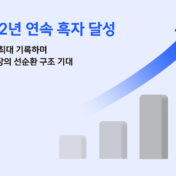Yahoo have had a physical team in Korea for 15 years, but when they pulled out on New Year’s Eve 2012 they could only claim a 1% market share in online search. Even Google trails domestic giants Naver (73% market share) and Daum (circa 16% market share) in a fairly distant third place (9% market share, compared with 88% globally), according to Korean Click data. Does this demonstrate ahostile environment for foreign companies hoping to break into Korea?
Understanding and catering to Korean consumers is absolutely vital to success in one of the most tech-savvy markets in the world, which enjoys among the fastest global internet speeds, and internet penetration of 81%. Korea manufactures among the most advanced mobile phones in the world and smart phone penetration hit 50% a few months before it did in the US (Autumn, 2012).
Even grannies use smart phones, so if you are going to sell a tech-based product to Koreans it better be good, and be strenuously maintained in the face of strong domestic competition, unlike the pitiful position in which yahoo found itself by mid 2012.
The Korean tech / online market is also dominated by massive domestic conglomerates (Samsung & LG and Naver & Daum), who benefit from both home advantage and established political associations.
But to say, as has been suggested by ‘anonymous’ connected with the recently departed Yahoo, that “Korea is not a place for foreign companies to pursue success in an efficient way,” (wsj.com) may be a little off-kilter.
There are strong foriegn brands in Korea. Apple, a raft of luxury cosmetics, clothing and accessories brands, big sports names, whiskey, E-Mart and Tesco, and a number of luxury car brands luxury cars to name a few.
But Facebook is perhaps the best example of a foreign company that has both excelled in Korea, and wiped out a big domestic player, whose experience in Korea has not hinted at a hostile market environment. Cyworld, which was heralded as the first true social networking service along with MySpace, launched in 1999, almost four years before the launch of Facebook. However, by 2011 Cyworld’s days were clearly numbered and now it maintains a spot in the SNS graveyard. Koreans associated more with the services offered by Facebook and moved across, unrelentingly, until Cyworld was no more.
This has much less to do with Korean customers being ‘hostile’ than it has to do with [some] foreign companies not being able to cater to the distinct needs of their Korean consumers, in the face of established domestic market leaders who have grown up with their consumers. Having a friend or two in government never hurts your position though.





